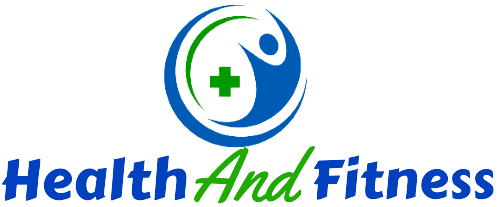Introduction
In today’s fast-paced world, maintaining physical fitness is crucial for achieving optimal health and well-being. Regular exercise and a balanced diet not only contribute to a healthy physique but also have a profound impact on various aspects of our lives. we understand the significance of physical fitness and its direct correlation to overall wellness. In this article, we will delve into the depths of physical fitness, exploring its benefits, key components, and how it can be integrated into our daily lives.
The Key Components of Physical Fitness
Physical fitness comprises several key components that work in harmony to enhance our physical capabilities. These components are essential for achieving overall fitness and ensuring a well-rounded approach to health. Let’s take a closer look at each of these components:
- Cardiovascular Endurance
Cardiovascular endurance refers to the ability of the heart, lungs, and blood vessels to deliver oxygen to the working muscles during sustained physical activity. Engaging in aerobic exercises such as running, swimming, or cycling improves cardiovascular endurance, leading to a stronger heart, increased lung capacity, and improved overall stamina.
- Muscular Strength and Endurance
Muscular strength and endurance are vital for performing daily tasks and maintaining proper posture. Strength training exercises, such as weightlifting, resistance training, and bodyweight exercises, help build lean muscle mass, increase bone density, and enhance overall strength. By improving muscular endurance, individuals can sustain physical activities for longer periods without fatigue.
- Flexibility
Flexibility plays a crucial role in maintaining joint mobility and preventing injuries. Stretching exercises and activities like yoga or Pilates help improve flexibility, allowing for better range of motion and reducing muscle stiffness. Increased flexibility also contributes to better posture, enhanced athletic performance, and overall physical comfort.
- Body Composition
Body composition refers to the proportion of lean muscle mass, body fat, bones, and organs within the body. Maintaining a healthy body composition is essential for overall well-being. Regular exercise and a balanced diet help promote a healthy body composition by reducing excess body fat and increasing lean muscle mass.
The Benefits of Physical Fitness
Achieving and maintaining physical fitness goes beyond just looking good; it has numerous benefits that positively impact our lives in various ways. Let’s explore some of the key advantages of incorporating physical fitness into our daily routines:
- Improved Physical Health
Regular exercise and a healthy lifestyle contribute to improved physical health. Engaging in physical activities helps strengthen the immune system, reduce the risk of chronic diseases such as heart disease, diabetes, and certain types of cancer, and improve overall cardiovascular health. By promoting weight management and boosting metabolism, physical fitness plays a crucial role in maintaining a healthy body.
- Mental Well-being
Physical fitness has a profound impact on our mental well-being. Engaging in regular exercise stimulates the release of endorphins, often referred to as the “feel-good” hormones. These endorphins help alleviate stress, reduce anxiety and depression, and improve overall mood. Physical fitness also enhances cognitive function, memory, and concentration, leading to better productivity and mental clarity.
- Increased Energy Levels
Incorporating physical fitness into our daily routines significantly boosts energy levels. Regular exercise improves blood circulation and oxygen flow throughout the body, providing a natural energy boost. By strengthening the cardiovascular system and improving overall stamina, physical fitness helps combat fatigue and promotes a sustained level of vitality throughout the day.
- Enhanced Quality of Life
By improving physical health, mental well-being, and energy levels, physical fitness contributes to an enhanced overall quality of life. Engaging in regular exercise increases self-confidence, promotes better sleep, and reduces the risk of injury. Moreover, physical fitness fosters a sense of discipline and self-motivation, which can be applied to various aspects of life, including personal and professional goals.
Integrating Physical Fitness into Daily Life
Incorporating physical fitness into our daily routines doesn’t have to be daunting. By adopting a holistic approach and making small, consistent changes, we can gradually build a foundation of fitness. Here are some practical tips to help you integrate physical fitness into your daily life:
- Set Realistic Goals
Start by setting realistic and achievable fitness goals. Whether it’s increasing the number of steps taken daily, completing a certain number of workouts per week, or improving flexibility, having specific goals will keep you motivated and focused.
- Find Activities You Enjoy
Explore various physical activities and find what you enjoy the most. Whether it’s dancing, swimming, hiking, or playing a sport, engaging in activities you genuinely love increases the likelihood of sticking to your fitness routine.
- Make it a Habit
When it comes to physical fitness, consistency is everything. Aim to incorporate exercise into your daily routine and make it a habit. Schedule dedicated workout times and treat them as non-negotiable appointments with yourself.
- Seek Professional Guidance
If you’re new to exercise or unsure where to start, seeking professional guidance can be immensely beneficial. Consider consulting with a certified personal trainer or fitness instructor who can create a tailored fitness plan based on your goals and abilities.
- Maintain a Balanced Diet and Stay Hydrated
Proper hydration and a balanced diet are crucial for supporting physical fitness. Drink an adequate amount of water throughout the day and fuel your body with nutrient-rich foods that provide the necessary energy and nutrients for optimal performance.
- Monitor Progress
Track your progress to stay motivated and celebrate milestones along the way. Use fitness apps, journals, or wearable devices to monitor your workouts, nutrition, and overall progress. This feedback will help you identify areas for improvement and adjust your routine accordingly.
Conclusion
Physical fitness is a cornerstone of a healthy and fulfilling life. By prioritizing regular exercise, proper nutrition, and overall well-being, we can unlock a multitude of benefits that positively impact every aspect of our lives. we believe in the power of physical fitness and its transformative effects on individuals. Embrace the journey towards optimal health, and experience the incredible rewards that physical fitness brings.





